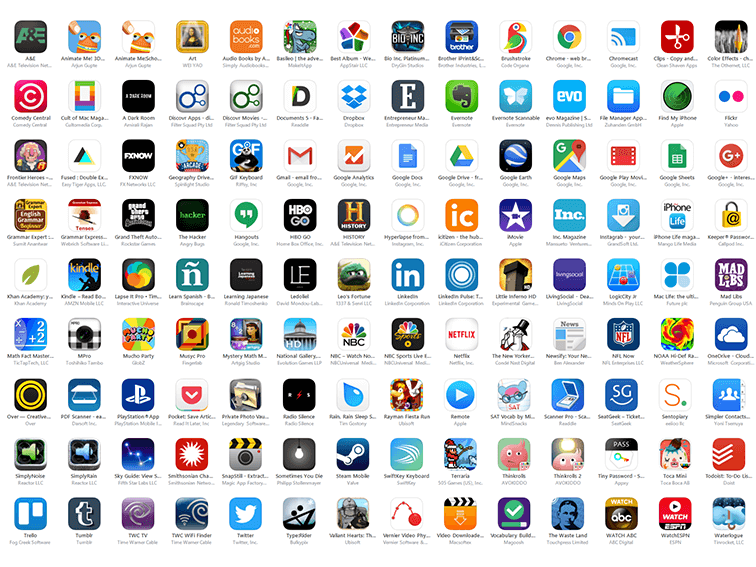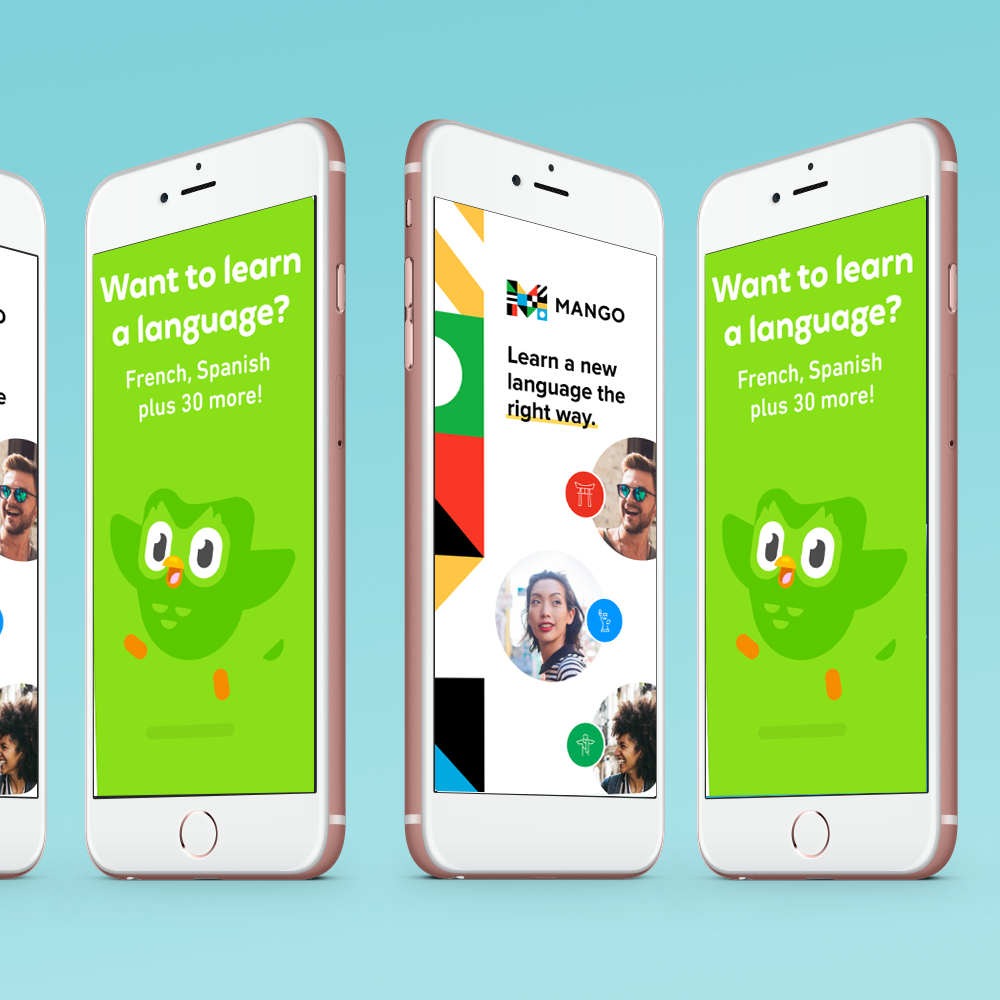Best Learning Apps: Unlock Your Potential with the Top Educational Tools
In today’s digital age, learning has no boundaries. Whether you’re looking to pick up a new skill, improve your professional capabilities, or explore a new subject, learning apps provide the convenience and flexibility to learn at your own pace. With so many options available, it’s important to choose apps that offer the best features, user experience, and educational value.
In this article, we’ll explore the top learning apps that can help you enhance your knowledge and skills. From language learning to coding and beyond, these apps are designed to cater to diverse learning needs.

Why Learning Apps Are a Game-Changer
The rise of mobile technology has transformed how we approach education. Here’s why learning apps are the future of education:
-
Accessible Anywhere, Anytime: Learning apps give you the flexibility to learn at your own pace, whether you’re commuting or relaxing at home.
-
Interactive Learning: Many apps incorporate gamification, quizzes, and interactive lessons that make learning more engaging and fun.
-
Diverse Subjects: From languages to technology and personal development, learning apps cover a wide range of subjects.
With the right learning app, you can take your education into your own hands and achieve your goals on your own schedule.
Top Learning Apps for Language Learning
If you’re interested in learning a new language, there are plenty of apps that can help you get started. Whether you’re a beginner or looking to brush up on your skills, these apps offer an immersive experience.
1. Duolingo
Duolingo is one of the most popular language-learning apps globally, offering over 30 languages. The app uses a game-like approach, making learning feel fun and rewarding. Whether you’re learning Spanish, French, or German, Duolingo offers a structured curriculum that helps you gradually improve your skills.
-
Pros: Free to use, easy-to-follow, gamified experience.
-
Cons: Limited advanced-level content.
Duolingo is perfect for beginners and intermediate learners who want to build their language foundation with bite-sized lessons and constant feedback.
:max_bytes(150000):strip_icc()/duolingo-440dc8fb9ec44177b91198a142021a55.jpg)
2. Babbel
Babbel is another top language-learning app that offers courses in 14 languages. The app focuses on real-world conversations, helping you speak with confidence in everyday situations. The lessons are designed by linguistic experts, and the app adapts to your learning speed.
-
Pros: Structured lessons, conversation-based approach, paid subscription.
-
Cons: No free version, limited language options compared to other apps.
Babbel is ideal for learners who want more in-depth, practical language skills, particularly for travel or professional purposes.
3. Memrise
Memrise offers a unique approach to language learning, focusing on vocabulary and pronunciation. The app uses native speakers to help you learn new words and phrases in context. It’s perfect for learners who want to build vocabulary in their target language.
-
Pros: Fun, easy-to-use, offers real-world language use.
-
Cons: Limited grammar lessons, more focused on vocabulary.
Memrise is a great app for learners who want to expand their vocabulary quickly and effectively.
Top Learning Apps for Coding
If you’re interested in learning coding or improving your programming skills, the following apps can provide hands-on tutorials, interactive challenges, and expert guidance.
1. SoloLearn
SoloLearn is a fantastic app for beginners looking to get started with coding. It offers free, bite-sized lessons in languages like Python, JavaScript, C++, and more. SoloLearn also features a community where learners can share knowledge and collaborate on projects.
-
Pros: Free to use, beginner-friendly, community-driven.
-
Cons: Limited advanced content.
SoloLearn is perfect for coding newbies who want a fun, interactive way to learn programming.
2. Grasshopper
Grasshopper by Google is another great option for beginners who want to learn coding. The app teaches JavaScript through engaging puzzles and exercises, making it accessible to people with no coding experience.
-
Pros: Free, easy to follow, engaging lessons.
-
Cons: Limited to JavaScript.
Grasshopper is ideal for anyone looking to get their feet wet in programming, especially if they want a solid foundation in JavaScript.

3. Udemy
Udemy offers a vast library of coding courses for all levels, from beginners to advanced learners. Whether you’re learning web development, mobile app development, or data science, Udemy has something for everyone.
-
Pros: Extensive course catalog, lifetime access to purchased courses.
-
Cons: Paid courses can be expensive, quality varies by instructor.
Udemy is perfect for learners who want structured courses from experienced instructors. You’ll also get lifetime access to the course materials, making it a great investment in your learning journey.
Top Learning Apps for Personal Development
Learning apps aren’t just for technical skills. There are also plenty of apps available to help you grow personally, improve productivity, and enhance your soft skills.
1. Headspace
Headspace is a popular app for mindfulness and meditation. It offers guided meditation sessions, stress-relief exercises, and sleep stories to help you manage anxiety and improve your mental well-being.
-
Pros: User-friendly, effective for stress reduction.
-
Cons: Limited free content, subscription-based.
Headspace is ideal for anyone looking to improve their mental health and cultivate mindfulness in their daily routine.
2. Skillshare
Skillshare is a platform offering online courses across a wide range of creative fields, including graphic design, photography, writing, and more. The app features courses taught by industry experts and provides opportunities to build portfolios and networks.
-
Pros: Wide range of courses, project-based learning.
-
Cons: Requires a subscription, limited to creative fields.
Skillshare is perfect for creative professionals who want to expand their skills in areas like design, writing, and entrepreneurship.
How to Choose the Right Learning App
Choosing the right learning app depends on several factors, including your learning style, goals, and budget. Here are some tips to help you make an informed decision:
-
Define Your Learning Goals: Are you looking to learn a language, improve your coding skills, or develop professionally? Pick an app that aligns with your specific needs.
-
Check for Reviews: User feedback can provide valuable insights into the app’s effectiveness and usability.
-
Start with Free Trials: Many apps offer free trials or basic versions. Test them out to see which one suits your learning style before committing to a subscription.
FAQs: Learning Apps
What is the best app for learning a language?
Some of the best apps for language learning include Duolingo, Babbel, and Memrise. These apps offer a variety of languages and use different learning methods to suit different learners.
Can I learn coding through an app?
Yes! Apps like SoloLearn and Grasshopper are excellent for beginners looking to learn coding, particularly in languages like JavaScript and Python.
Are learning apps free?
Many learning apps, such as Duolingo and SoloLearn, offer free versions. However, some premium features may require a paid subscription.
How long does it take to learn a new skill using an app?
The time it takes to learn a new skill depends on the app, your learning pace, and the complexity of the skill. With consistent practice, many people can see significant progress within a few months.
Conclusion
With the right learning app, you can unlock your full potential and gain new skills in a way that fits your lifestyle. Whether you’re interested in languages, coding, or personal development, there’s an app designed to help you succeed. Embrace the power of learning on the go, and start mastering a new skill today!
For more great learning resources, check out our educational tools.

